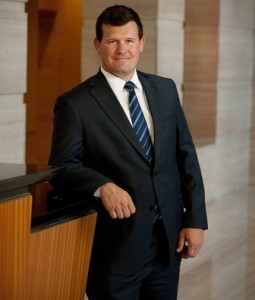FALSE ADVERTISING? Not if Just One Expert Says It’s Not.
The United States Court of Appeals for the Fourth Circuit recently held that “a manufacturer cannot be liable for false advertising so long as at least one qualified expert opines that the representations made are truthful, even if the overwhelming weight of scientific evidence is to the contrary.” Brown v. GNC Corp. (In re GNC Corp., Triflex Prods. Mktg. & Sales Practices Litig. (No. II)), 2015 U.S. App. LEXIS 10351, *9 (4th Cir. Md. June 19, 2015). In Brown, the plaintiffs purchased joint health supplements produced and sold by GNC and Rite Aid. In their complaint, the plaintiffs alleged that GNC and Rite Aid violated consumer protection laws of various states by falsely advertising that the supplements promote joint health, “even though many scientific studies have shown that [the supplements] are no more effective than a placebo in treating the symptoms of osteoarthritis.” Id. at *1.
GNC and Rite Aid moved to dismiss the complaint contending that the plaintiffs failed to adequately plead that the allegedly misleading marketing representations were false. The district court granted the motion to dismiss and the plaintiffs appealed to the Fourth Circuit. Ultimately, the Brown Court affirmed the district court’s dismissal and held that “[b]ecause marketing statements that accurately describe the findings of duly qualified and reasonable scientific experts are not literally false,” the plaintiffs could not state a claim upon which relief could be granted. Id.
Notes from the Opinion:
- The Court acknowledged that a false advertising claim can be based on “false or misleading” representations and that to support a claim for false advertising “a plaintiff must allege either (i) that the challenged representation is literally false or (ii) that it is literally true but nevertheless misleading.” Id. at *17 (citations omitted). The Brown Court’s decision noted that: “[c]rucially, Plaintiffs have consistently argued below and on appeal that the challenged representations are false and that the challenged products are ineffective. The [Consolidated Amended Complaint] nowhere alleges, and Plaintiffs have at no time argued, that any of the representations are literally true but misleading.” Id. at 18.
- The Brown plaintiffs argued that it was inappropriate for the court to resolve a “battle of the experts” on the pleadings. The Fourth Circuit wholeheartedly disagreed, stating that “[b]y characterizing the dispute as a battle of the experts, Plaintiffs highlight the [Consolidated Amended Complaint]’s concession that a reasonable difference of scientific opinion exists as to whether [the supplements] can provide the advertised joint health benefits.” Id. at *20.
- The Brown plaintiffs further argued that affirming the district court’s order would “’permit a manufacturer of the most dubious product to engage an ‘expert’ and then contend it was immune from a consumer fraud action.’” The Court noted, however, that plaintiffs who believe that no reasonable scientist would agree with the challenged representations remain free to make that allegation. Id. at *20 (emphasis in original).
- The Brown Court did warn manufacturers that its opinion “should not be interpreted as insulating manufacturers of nutritional supplements from liability for consumer fraud. A manufacturer may not hold out the opinion of a minority of scientists as if it reflected broad scientific consensus.” However, because the plaintiffs asserted that the advertisements were literally false, rather than true but misleading, that issue was not before the Court on appeal. Id. at *21 (4th Cir. Md. June 19, 2015)
Accordingly, under Brown, a manufacturer is insulated from false advertising claims – so long as it can find just one viable expert to substantiate the assertions in its advertisements.
— Kevin C. Baltz
